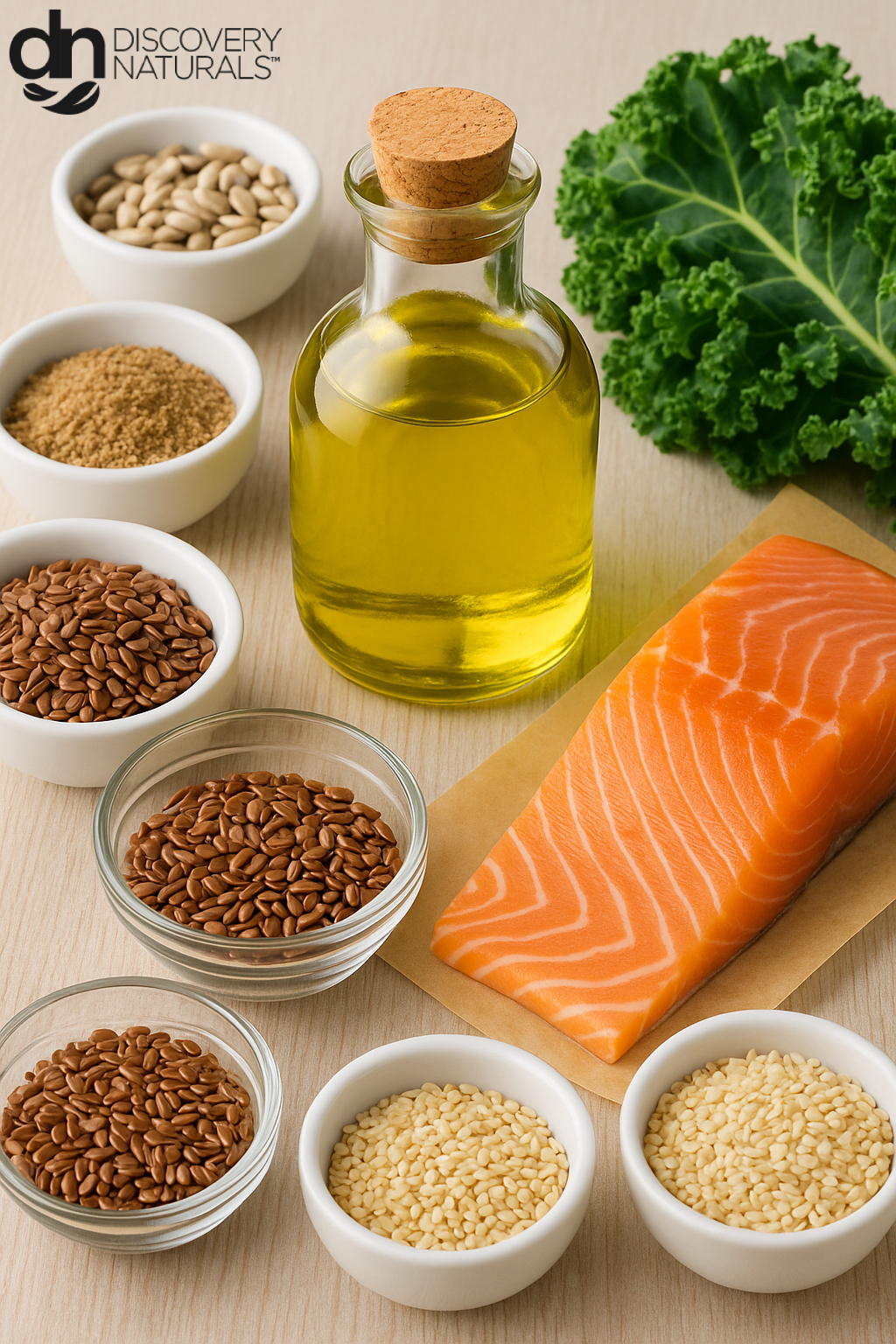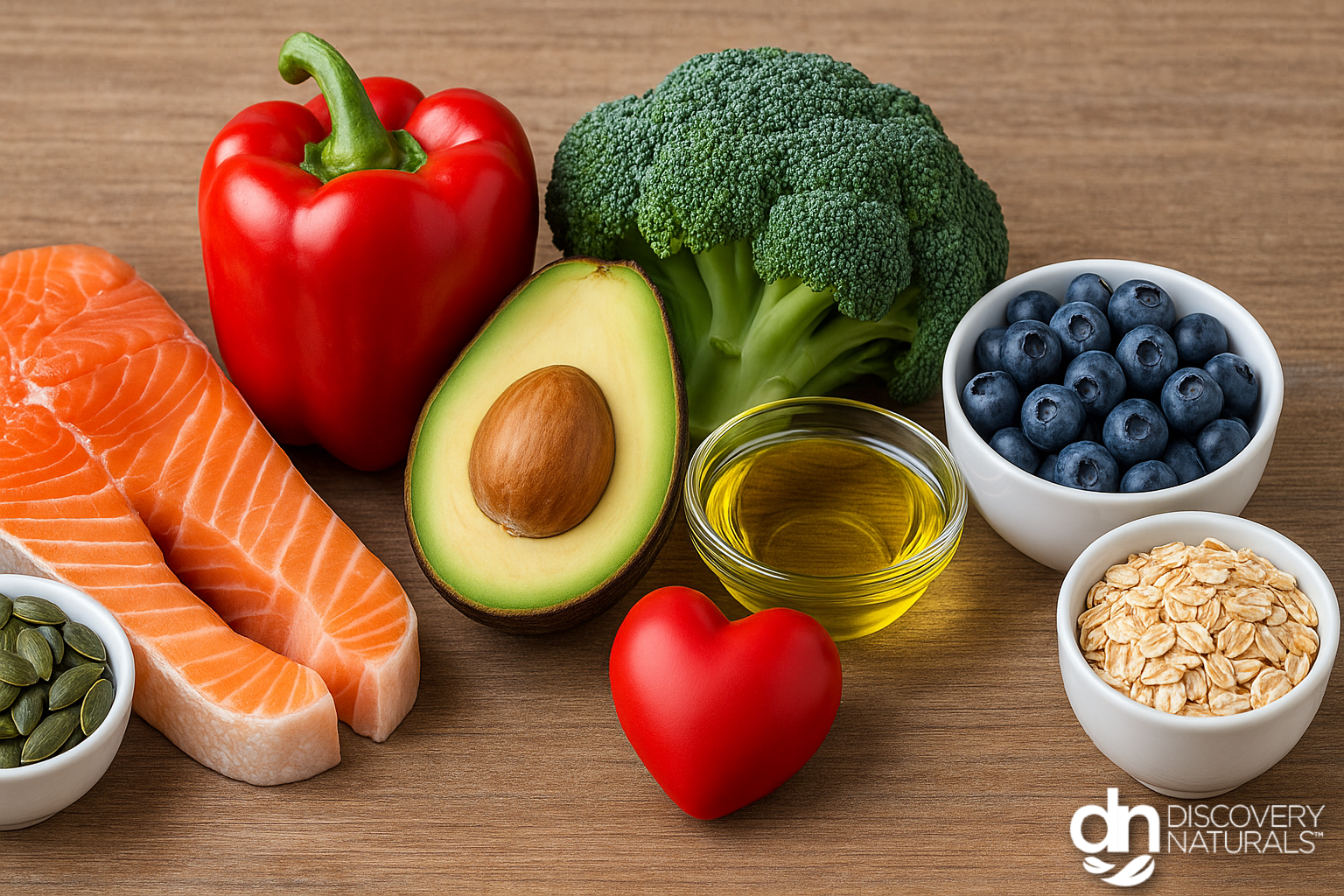A new study flips the script on linoleic acid, inflammation, and chronic disease—here’s how seed oils may actually support your health.
For years, seed oils like sunflower, canola, soybean, and safflower have been vilified as unhealthy. But a groundbreaking study presented at the American Society for Nutrition conference reveals something surprising: higher levels of linoleic acid—the primary omega-6 fatty acid in these oils—are associated with reduced inflammation, improved blood sugar control, and lower risk of heart disease and type 2 diabetes.

The Study: What You Need to Know
Researchers analyzed blood plasma biomarkers in nearly 1,900 people from the Framingham Heart Study, one of the most respected long-term health studies in the U.S. Instead of relying on food logs or diet questionnaires, this study measured actual linoleic acid levels in the blood, providing objective data on dietary fat intake and health markers.
Key findings:
- Participants with higher linoleic acid had significantly lower levels of inflammation markers like CRP, glycoprotein acetyls, and serum amyloid A.
- These individuals also had better glucose metabolism, lower insulin levels, and reduced insulin resistance (as measured by HOMA‑IR).
- Overall, this fat profile was linked to a healthier cardiometabolic risk profile—meaning lower risks for diabetes and heart disease.
Debunking the Seed Oil Myths
Seed oils have long been criticized for their omega-6 content, which many believed contributed to inflammation. But modern research—including this biomarker-based study—suggests that linoleic acid is actually anti-inflammatory in reasonable amounts.
Even the Center for Science in the Public Interest (CSPI) and nutrition experts now agree: there’s no credible evidence that seed oils cause chronic disease when consumed as part of a balanced diet. In fact, replacing saturated fats (like butter and lard) with unsaturated fats (like those in seed oils) can improve heart health.
Why Natural Matters: Choosing Better Seed Oils
Not all seed oils are created equal. Highly refined, industrial-grade oils used in processed foods often lack the health benefits of their less-processed counterparts. Here’s how to make healthier choices:
- Opt for cold-pressed or expeller-pressed oils, which retain more nutrients and antioxidants.
- Avoid partially hydrogenated oils, which contain harmful trans fats.
- Look for organic or non-GMO certifications to ensure quality and sustainability.
Discovery Naturals: Supporting Healthy, Natural Living
At Discovery Naturals, our mission is to help you live more naturally. While we don’t sell seed oils directly, we’re passionate about educating consumers on healthy ingredients, natural product swaps, and science-backed wellness insights.
Whether you're shopping for clean-label supplements, natural beard and hair dye, or skincare free from synthetic additives, our commitment to transparency and health is at the heart of every product. We believe informed choices empower better lifestyles.
Check out our blog for wellness topics like:
- The Truth About Synthetic Dyes
- How to Read Ingredient Labels
- Plant-Based Alternatives to Harsh Chemicals
Making the Switch: Everyday Ways to Add Healthy Fats
Incorporating natural seed oils into your routine doesn’t require a full diet overhaul. Here are a few simple swaps:
- Use sunflower or canola oil in homemade dressings or marinades.
- Replace butter in baking with cold-pressed grapeseed oil.
- Cook with olive oil and rotate in seed oils for variety.
- Add flax or chia seeds (rich in omega-3s) for balance.
Pairing natural seed oils with fiber-rich foods like leafy greens, legumes, and whole grains amplifies the metabolic and cardiovascular benefits.
FAQ: Seed Oils & Heart Health
Are seed oils actually good for you?
Yes, when consumed in natural, minimally processed form, seed oils containing linoleic acid are linked to reduced inflammation, better insulin sensitivity, and improved heart health.
What’s the best way to use seed oils?
Use cold-pressed or expeller-pressed oils in cooking, dressings, or baking. Avoid highly processed oils found in ultra-processed packaged foods.
Should I avoid all omega-6 fats?
No—omega-6 fats like linoleic acid are essential and beneficial when balanced with omega-3s. The key is quality and moderation.
How can I tell if an oil is healthy?
Look for terms like "cold-pressed," "organic," and "non-GMO" on the label. Avoid hydrogenated or refined oils high in trans fats.
Rethink the Fat You Fear
The latest science is clear: not all fats are bad, and some, like those found in natural seed oils, may be protective against today’s most pressing health concerns. At Discovery Naturals, we’re proud to support the journey toward better health through education, transparency, and clean living.
Sources:
Journal of Nutrition - American Society for Nutrition
CSPI - Center for Science in the Public Interest
EatingWell - Seed Oil Controversy
The New York Post - Seed Oil Study
Harvard T.H. Chan School of Public Health


